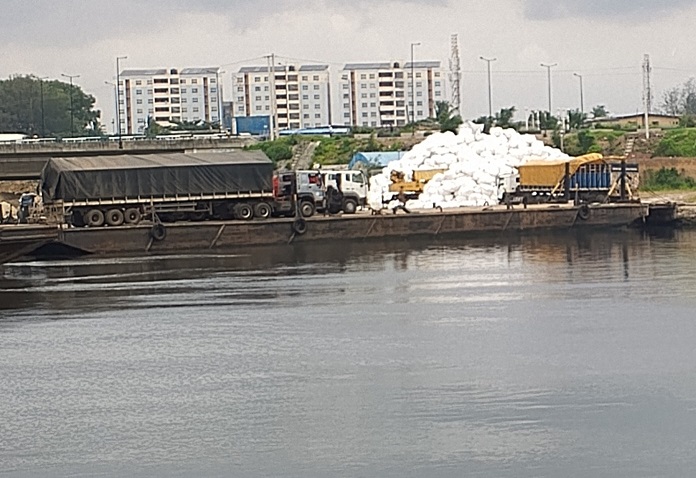News
Official Indifference And The Lagos Chemical Barge Silent Crisis

BY GBOGBOWA GBOWA
In the heart of Lagos, where the Mile 2 Jetty connects bustling commerce to the fragile veins of the Lagos Lagoon, a silent catastrophe is unfolding. A barge laden with industrial chemicals sank at the Clarion Jetty weeks ago. Since then, not a single official statement has emerged from either state or federal authorities. No cleanup. No containment. No accountability.
Instead, the rains came. And with them, a toxic tide. As any keen passerby would have observed, chemicals stacked carelessly near the Mile 2 bridge and inside the Clarion Shipping Terminal are now bleeding into the waterways. Each downpour carries more pollutants into the channel, feeding a slow poison into the lagoon—a vital ecosystem that sustains marine life, local fisheries, and the health of surrounding communities.
The runoff from the sunken barge and nearby chemical piles is not just an eyesore—it’s a chemical cocktail threatening biodiversity. Fish, crustaceans, and aquatic plants are exposed to substances that can disrupt reproductive cycles, cause mutations, and wipe out entire populations. The lagoon, once a source of livelihood and food, risks becoming a toxic graveyard.

What do you call a government that watches a potential environmental disaster unfold and does nothing? Negligent! Unresponsive!! Complicit!!!
All the relevant authorities have kept mute and pretended not to know or hear about the development. From reports, the National Inland Waterways Authority (NIWA), when contacted, offered a vague promise of response. Weeks later, silence. What of the Lagos State Environmental Protection Agency? Missing in action. And federal oversight? Seemingly nonexistent. This is not just bureaucratic inertia—it’s more of a betrayal of public trust.
Unchecked pollution at Mile 2 doesn’t stay at Mile 2. It flows outward—into the lagoon, into the Atlantic, into the food chain. It threatens tourism, fishing, and the health of thousands who rely on these waters. Children playing near the jetty, fishermen casting nets, families consuming seafood—all are at risk.
Environmental advocates are sounding the alarm. But without swift intervention, the damage may become irreversible. The silence of regulatory bodies is not just frustrating, it is dangerous. This is a moment for accountability, for transparency, for leadership.
Because when a government fails to protect its environment, it fails to protect its people.

























